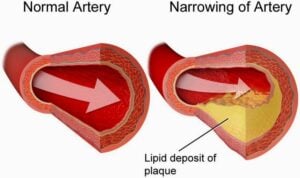Background & Prior Evidence
Smoking has long been linked to faster cognitive decline and higher rates of dementia. Current smokers face greater risk for both Alzheimer’s disease and vascular dementia, largely due to chronic damage to the brain’s blood vessels and oxygen supply.
Until recently, scientists were unsure whether quitting — particularly in older age — could reverse or lessen that risk. Now, a major new study in The Lancet Healthy Longevity offers clear evidence that it can.
New Findings from the Lancet Study
The research followed thousands of older men for about eight years, dividing them into four groups:
- Continual smokers
- Short-term quitters (less than four years)
- Long-term quitters (four years or more)
- Never smokers
The results were striking:
- Long-term quitters had a 14% lower overall risk of dementia (HR ≈ 0.86).
- Their risk of vascular dementia was about 32% lower (HR ≈ 0.68).
- Never smokers had the lowest overall risk (HR ≈ 0.81), showing a clear step-down trend across groups.
Importantly, these benefits appeared even in older adults who had smoked for decades.
The longer the individual had quit, the greater the protective effect.
What It Means for Caregivers and Families
This study sends a message that every caregiver and clinician should hear: it’s never too late.
Key takeaways:
- Hope matters. Quitting smoking benefits the brain, no matter the age.
- Encouragement helps. Many older adults assume it’s “too late,” but the data say otherwise.
- Support makes the difference. Professional guidance, nicotine replacement, and community programs greatly improve success.
- Protect vascular health. Because smoking harms blood flow, quitting directly lowers the risk of vascular dementia.
- Integrate with other habits. Combining smoking cessation with exercise, blood-pressure control, and social engagement multiplies the benefits.
For caregivers, these findings are a call to action — to motivate, reassure, and support older loved ones who are ready to quit.
Limitations and Future Directions
Every study has limits. This one primarily included older men, so results need confirmation in women and more diverse populations.
Also, smoking was self-reported, and dementia develops over many years — longer follow-ups would add clarity.
Still, the trend is consistent and biologically sound: quitting smoking reduces vascular damage and improves oxygen delivery to the brain. Researchers now aim to explore exactly how those changes protect cognition over time.
Conclusion and Call to Action
It’s never too late to protect your brain.
Even quitting later in life reduces dementia risk and strengthens brain health.
Caregivers and professionals can play a crucial role by:
- Offering empathy and structured help for quitting.
- Encouraging small, steady changes rather than perfection.
- Including smoking cessation as part of every brain-health plan.
Each quit counts — and each success brings another mind one step closer to staying sharp, independent, and connected.











